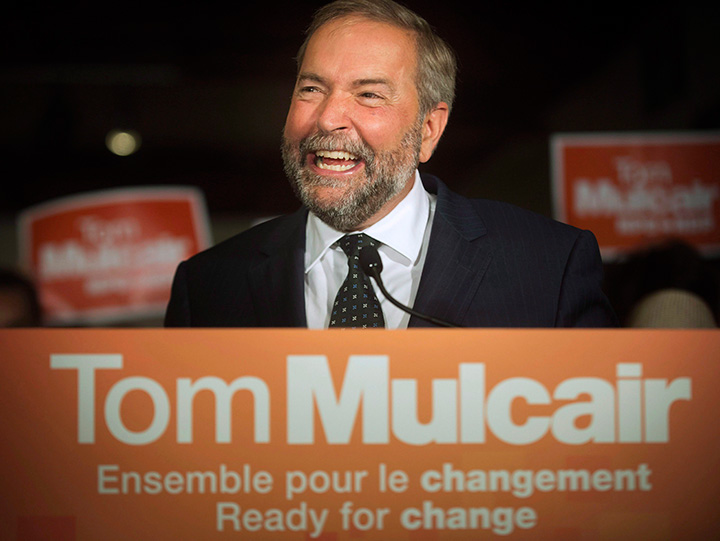It was a popular topic during Thursday night’s leaders debate on the economy.
The NDP says it will pay for billions in election promises by increasing the taxes paid by profitable corporations and wealthy Canadians.
The party claims by getting the rich to pay more, it will protect low-income Canadians and the middle-class.
How true is it?

The NDP’s plan will raise corporate taxes, reduce those for small business, and close stock option loopholes.
But one of Canada’s leading tax experts suggests it won’t actually end up being a “Robin Hood” scheme.
LISTEN: CKNW’s Charmaine de Silva takes a look at the NDP fiscal plan
Corporations pass on costs from tax hikes
Economist Jack Mintz says there are a number of ways lower income Canadians will be impacted by the corporate tax hike.
Mintz is predicting 150,000 jobs will be lost, and any lost profits will be made up elsewhere.
“Who actually ends up bearing it it is that businesses have either pass forward corporate income tax increase in higher consumer prices domestically, or they have to either fire or pay workers less.”
He says that makes it quite a regressive tax, because it has a larger impact on those make less money.
Small business tax helps the rich
Mintz adds, the lower small business taxes may actually do more to help the rich, with many wealthier Canadians actually use small business taxes to reduce what they pay.
“You can create a small business because, at least for a period, you can avoid paying higher taxes on your income, because the tax rates are low enough that it gives you a benefit. In particular, if you can get your income out in the form in the form of capital gains from a small business, you’re much better off than if you had taken your wages in the form of salary.”
He says that’s why 60-percent of the value of the small business tax credit goes to households making more than $200,000.
LISTEN: CKNW’s Charmaine de Silva takes a look at the NDP fiscal plan
“Unfair” stock option loopholes don’t create revenue
As for closing what the NDP calls “unfair” loopholes on stock options, Mintz questions whether that will actually pull in revenue.
“I actually support the NDP position of taxing fully stock options at the personal level, but you’d have to give corporate deductions, otherwise people would just abandon stock options and go to other forms of compensation where you do get a tax deduction.”
You can read the plan here:
NDP Fiscal Plan by CKNW980 on Scribd






Comments